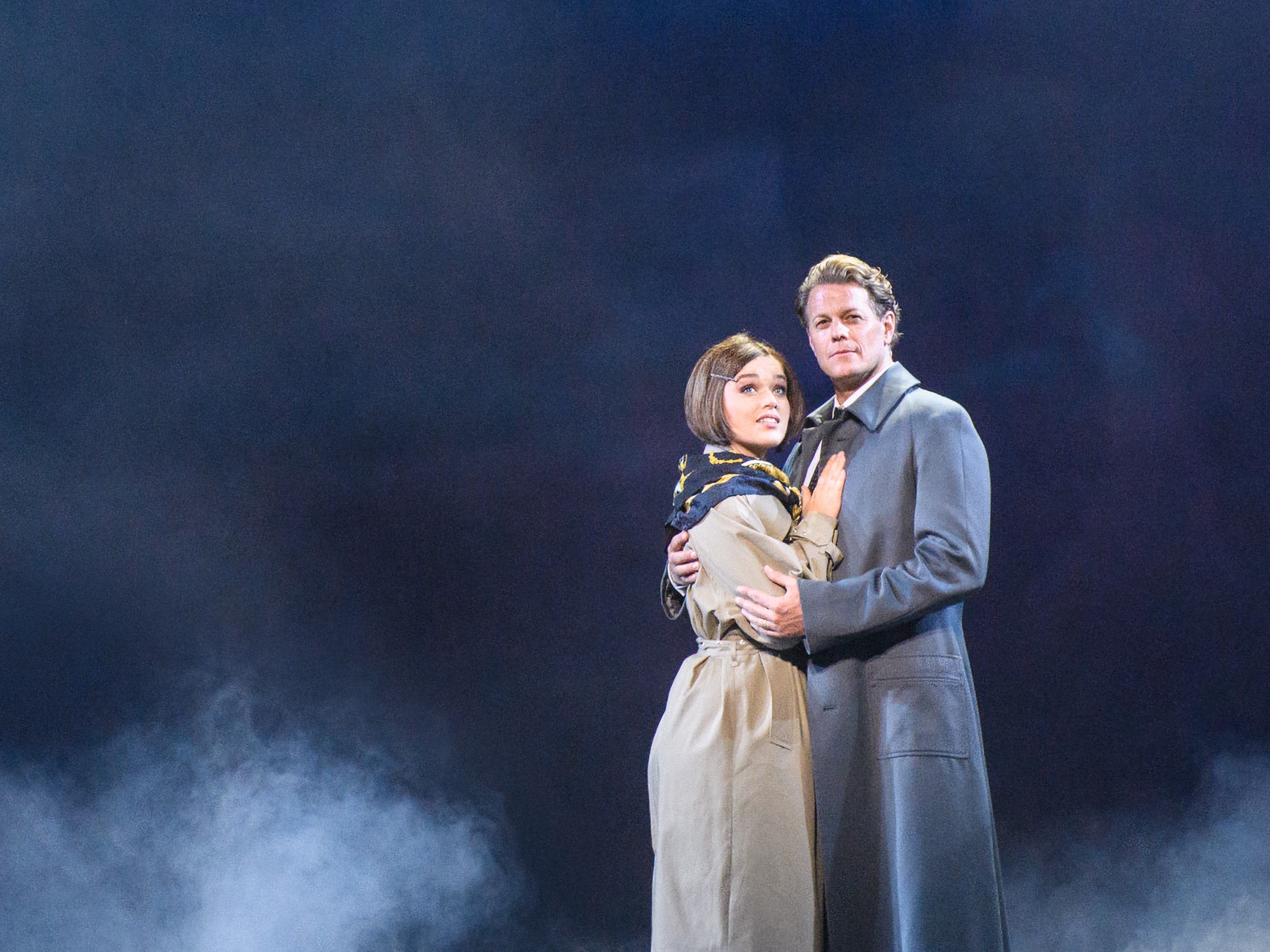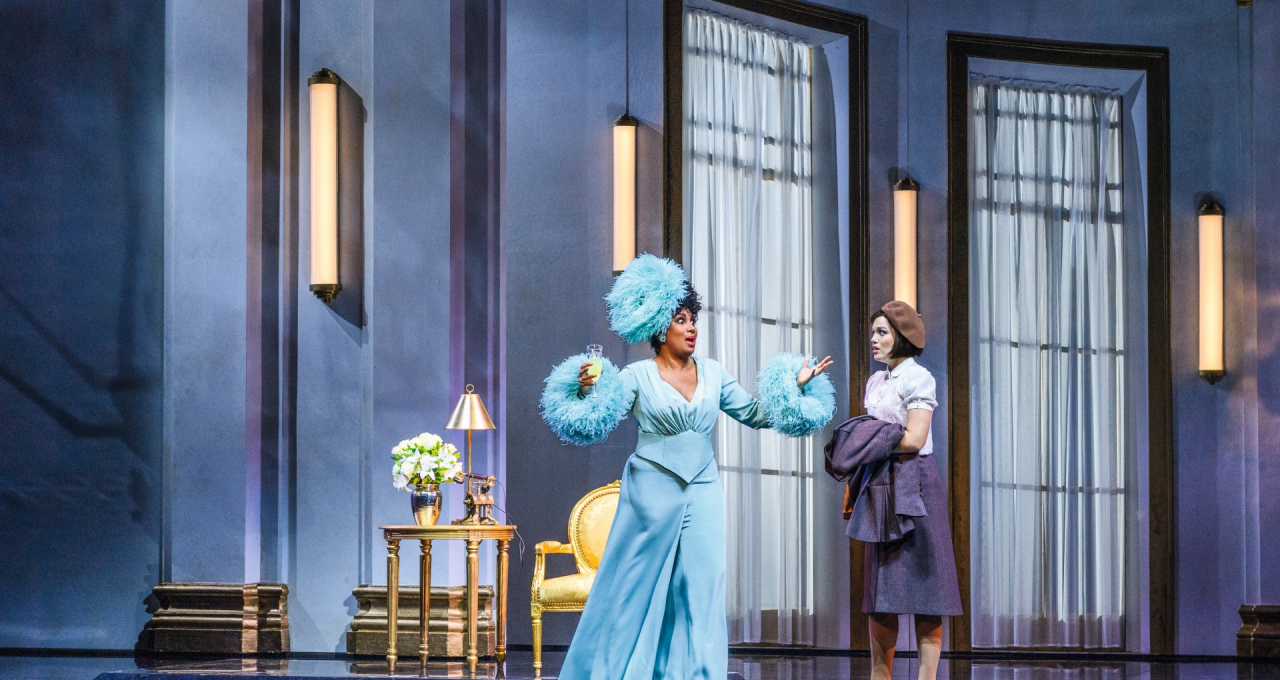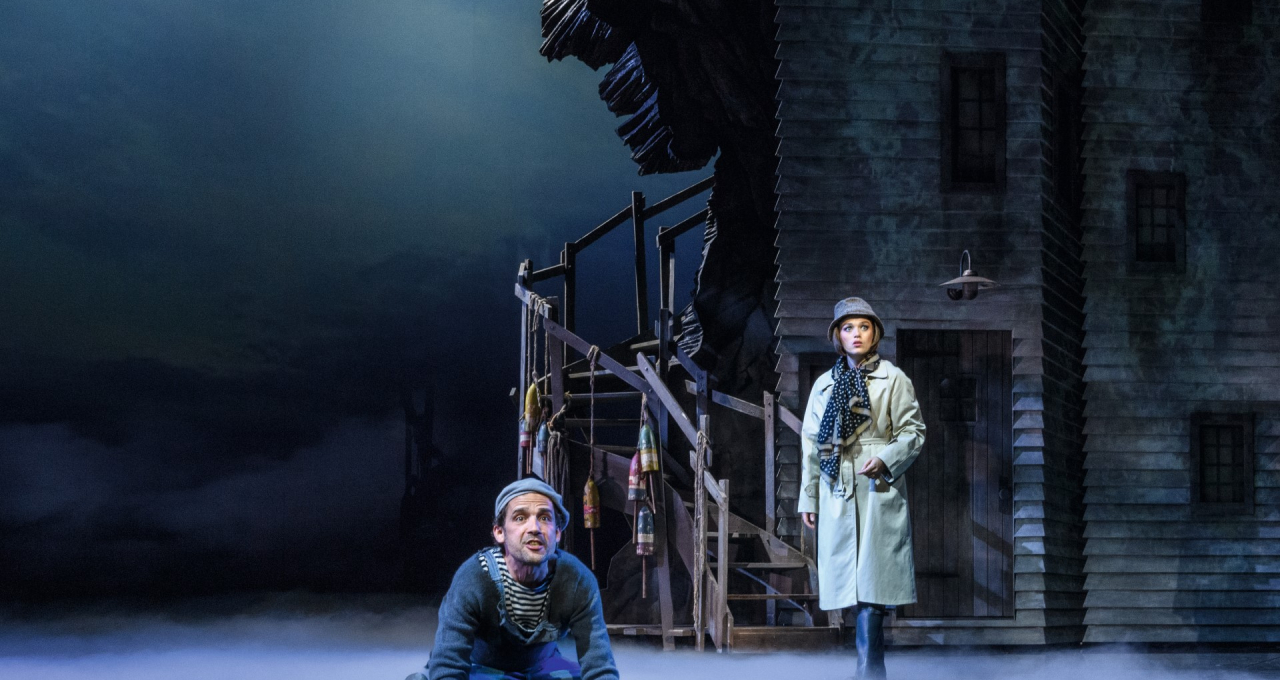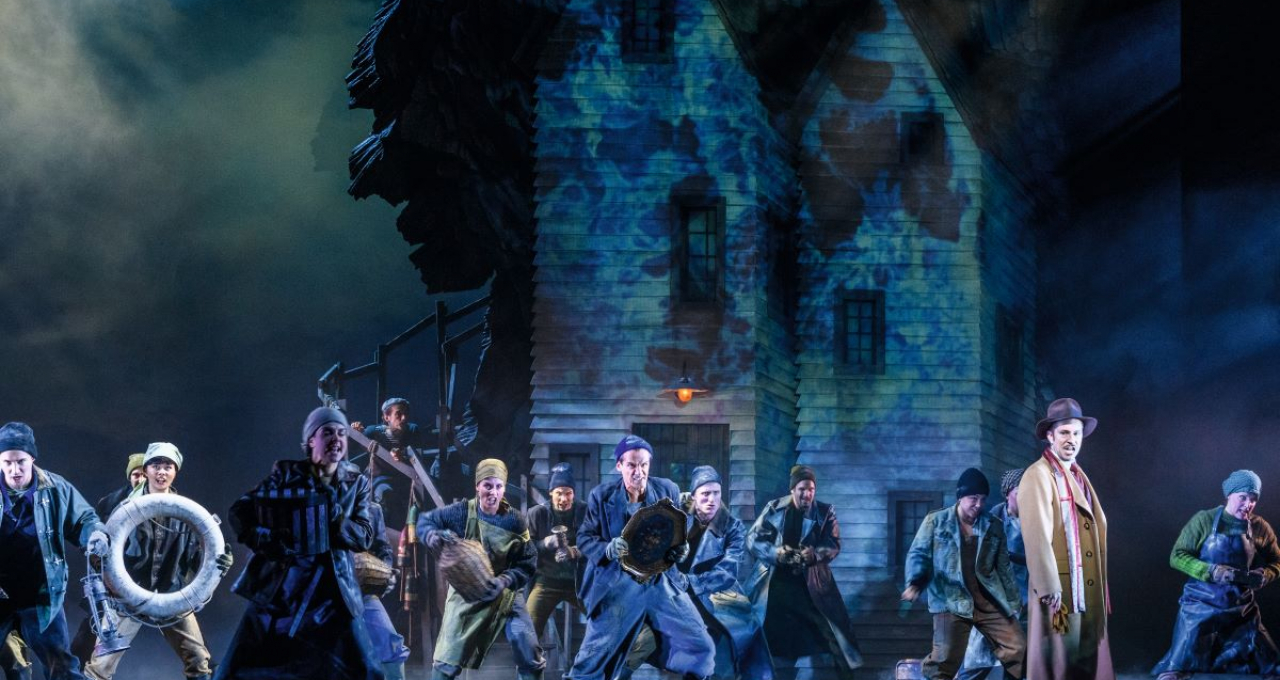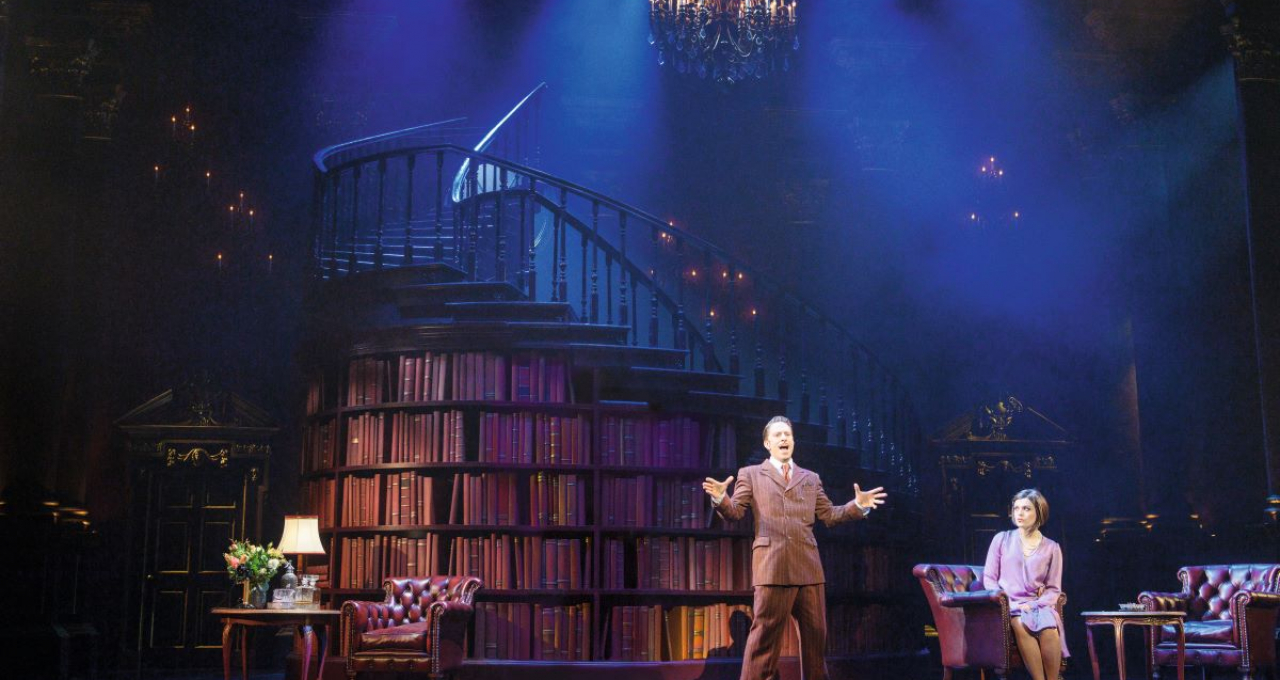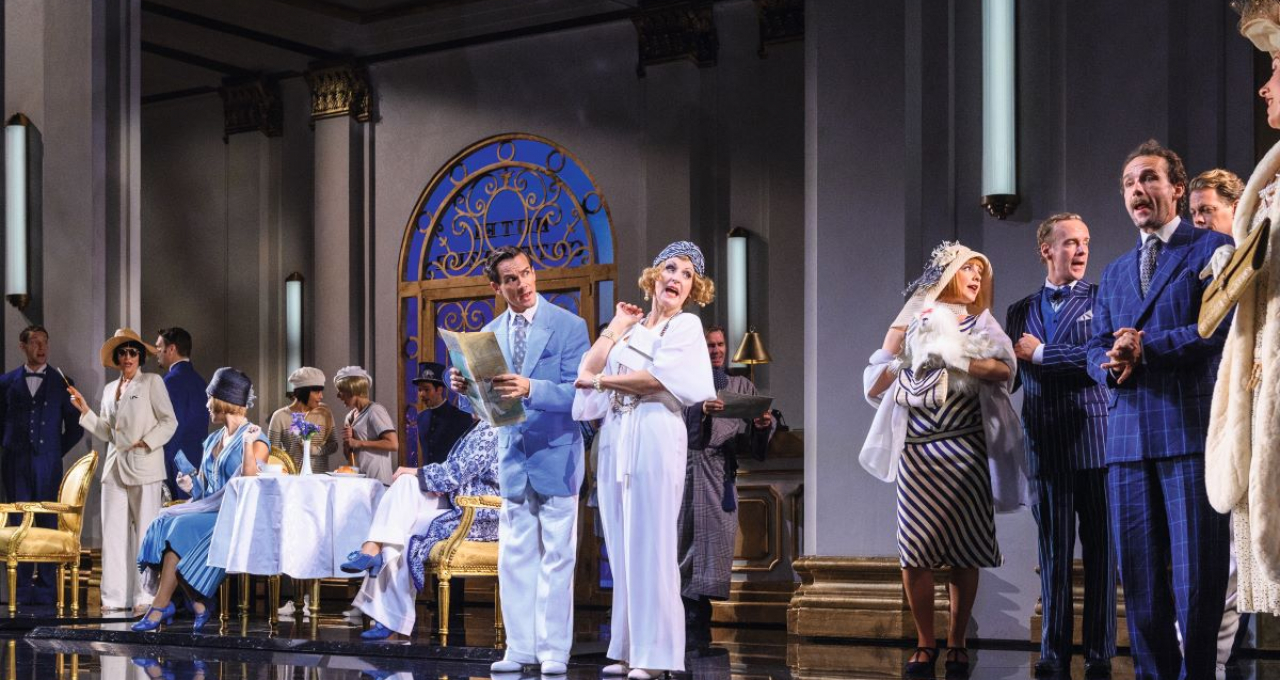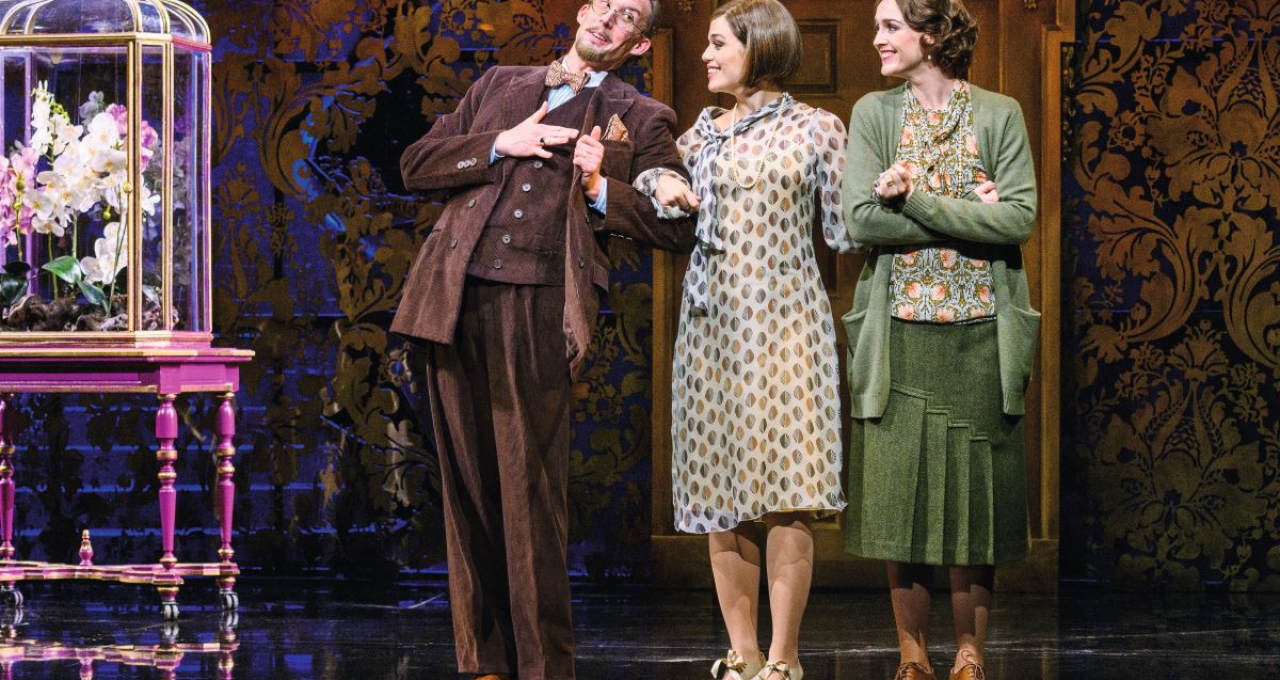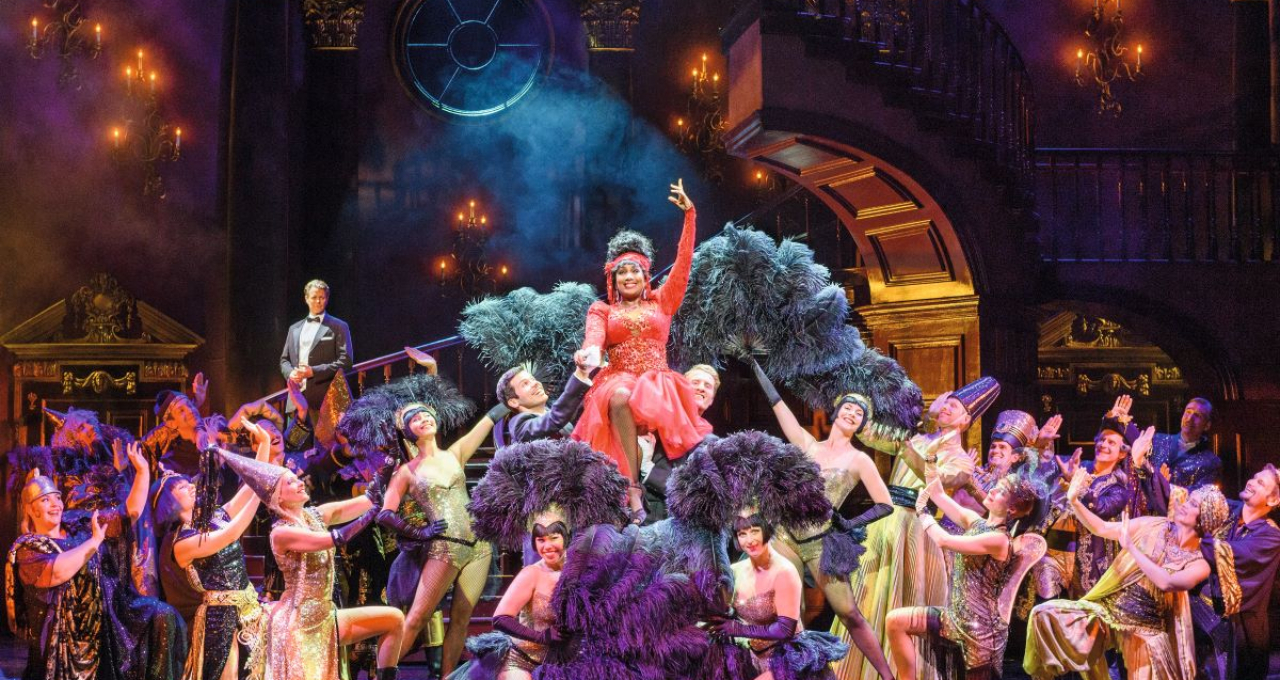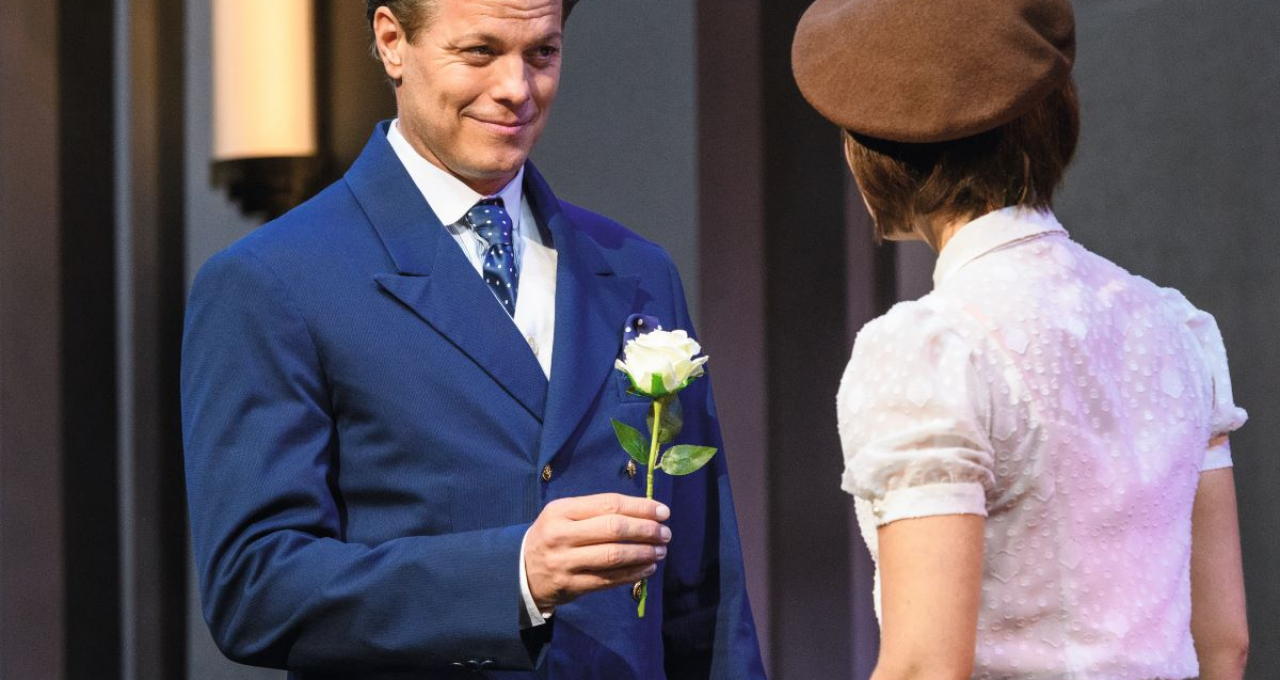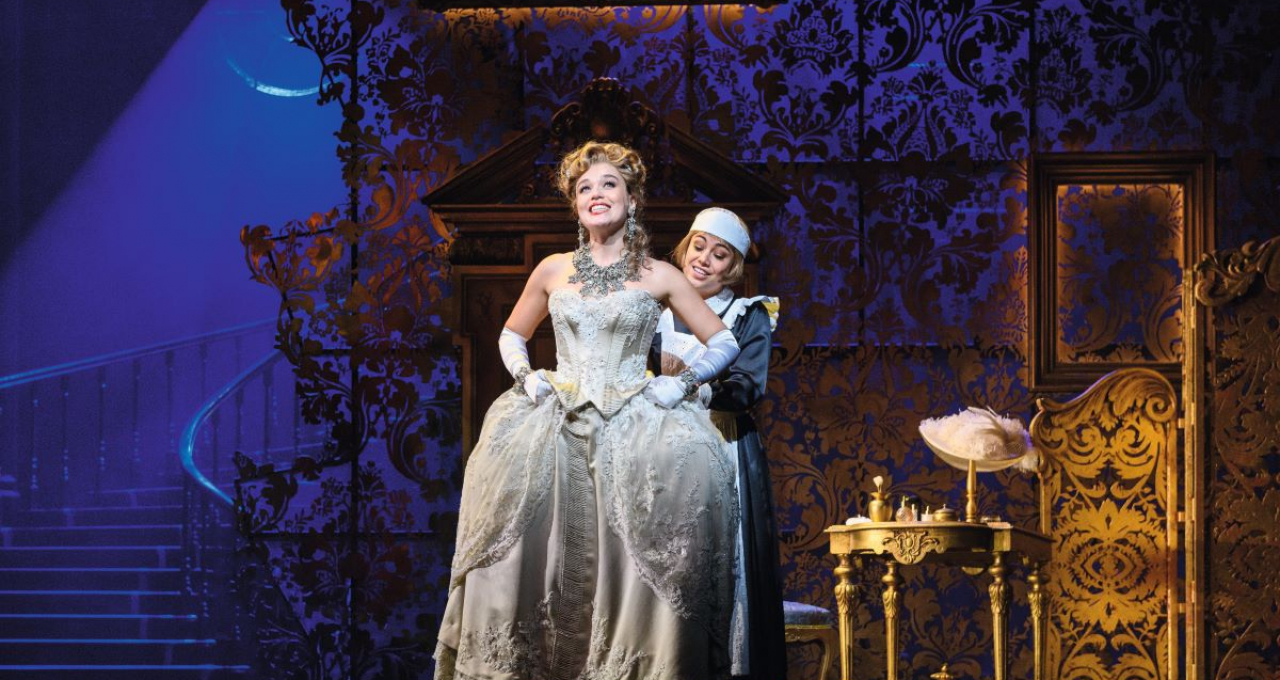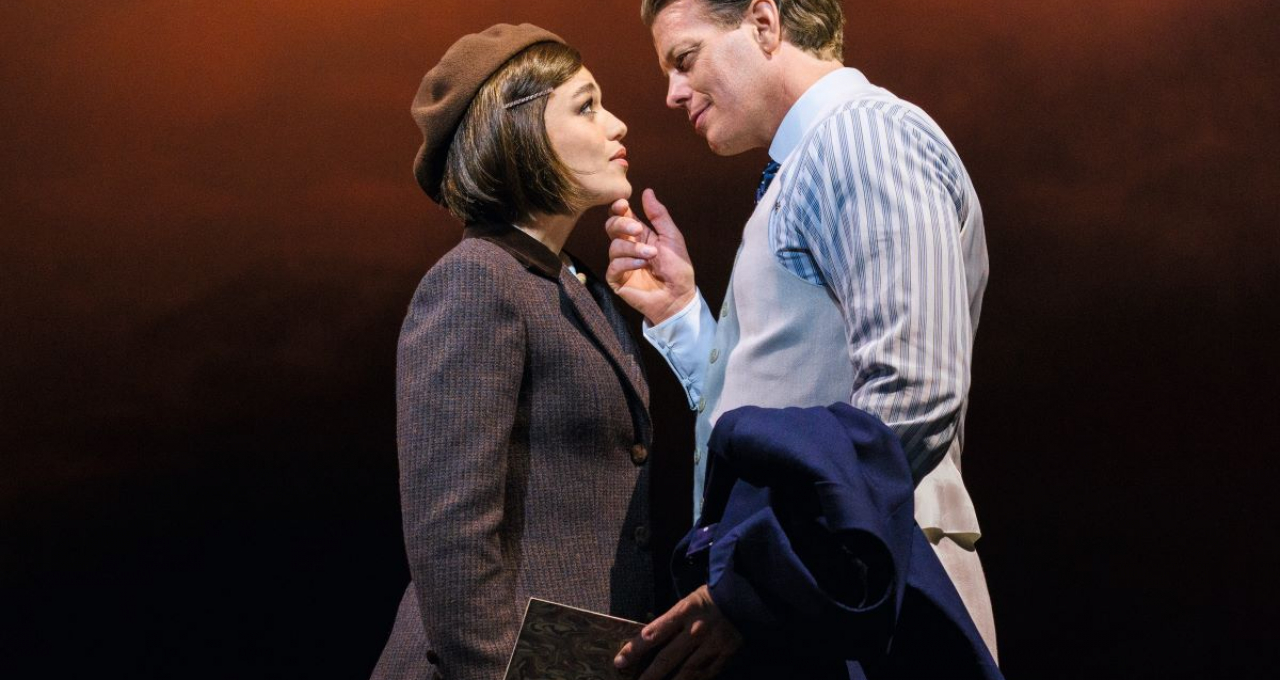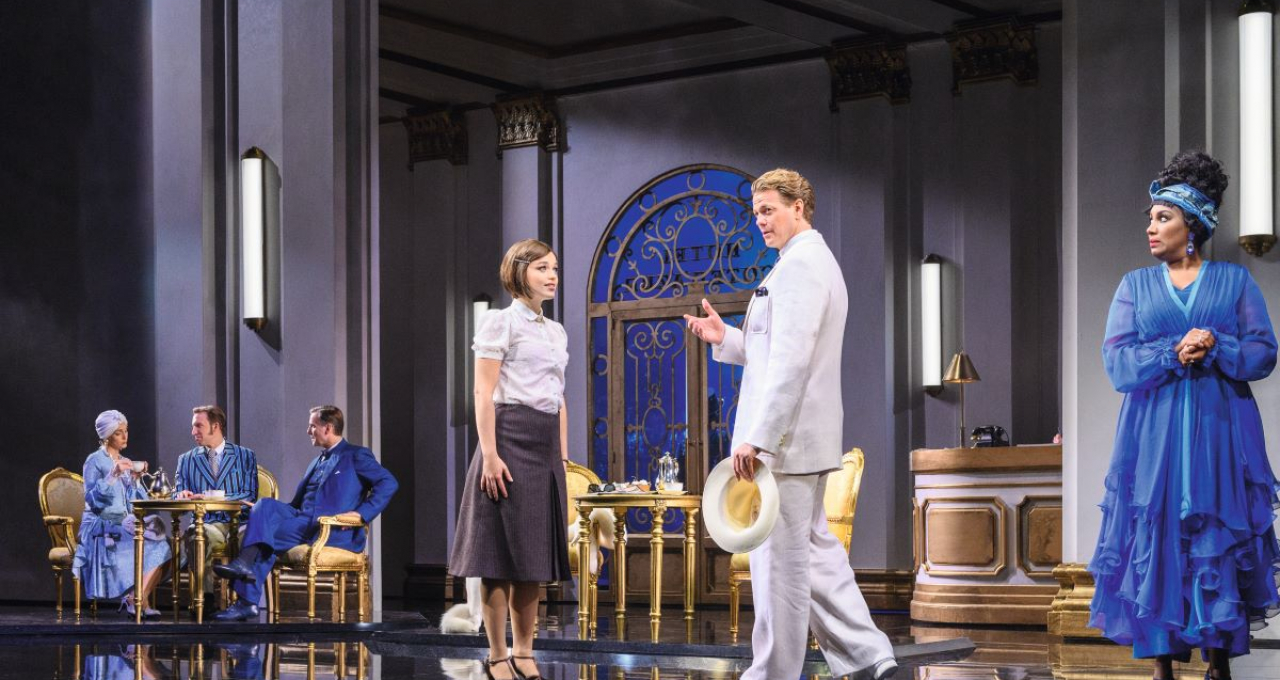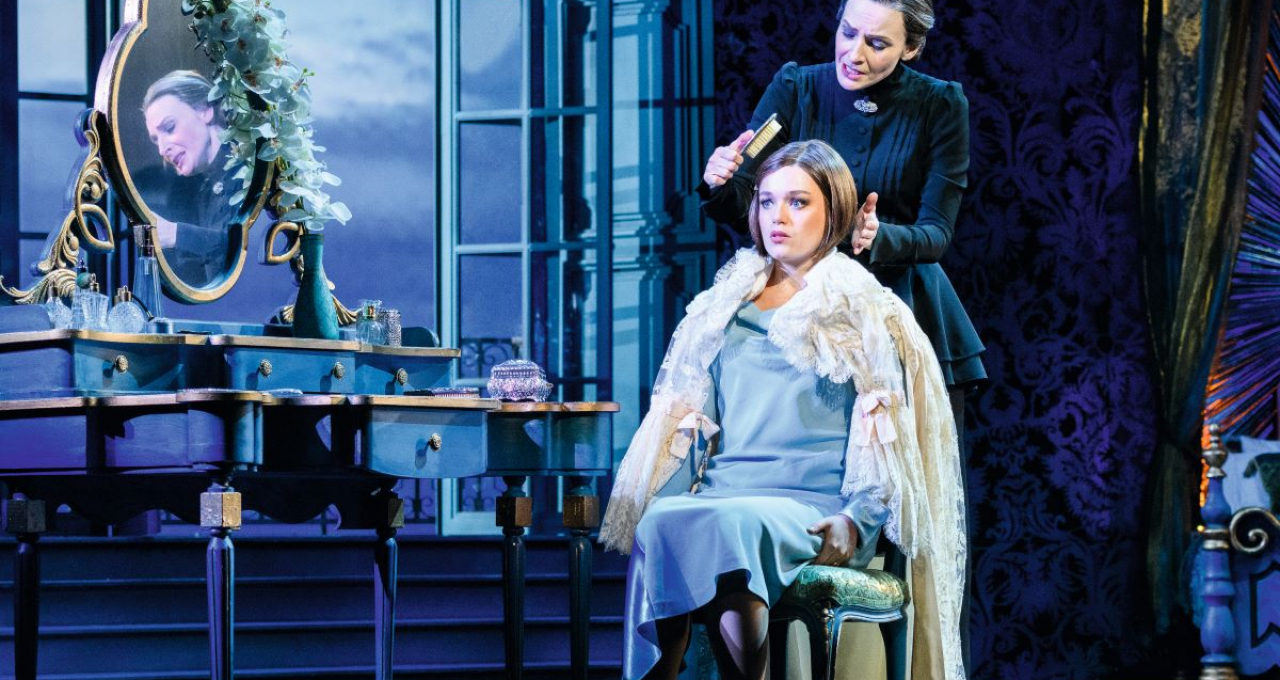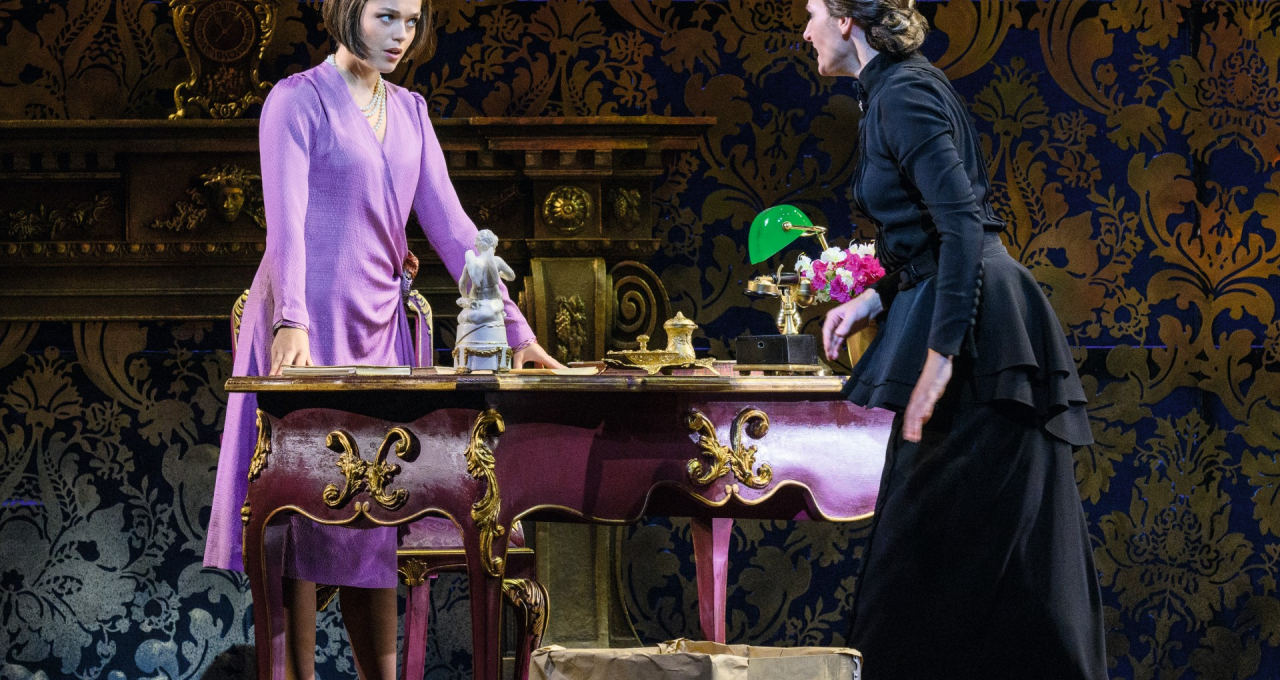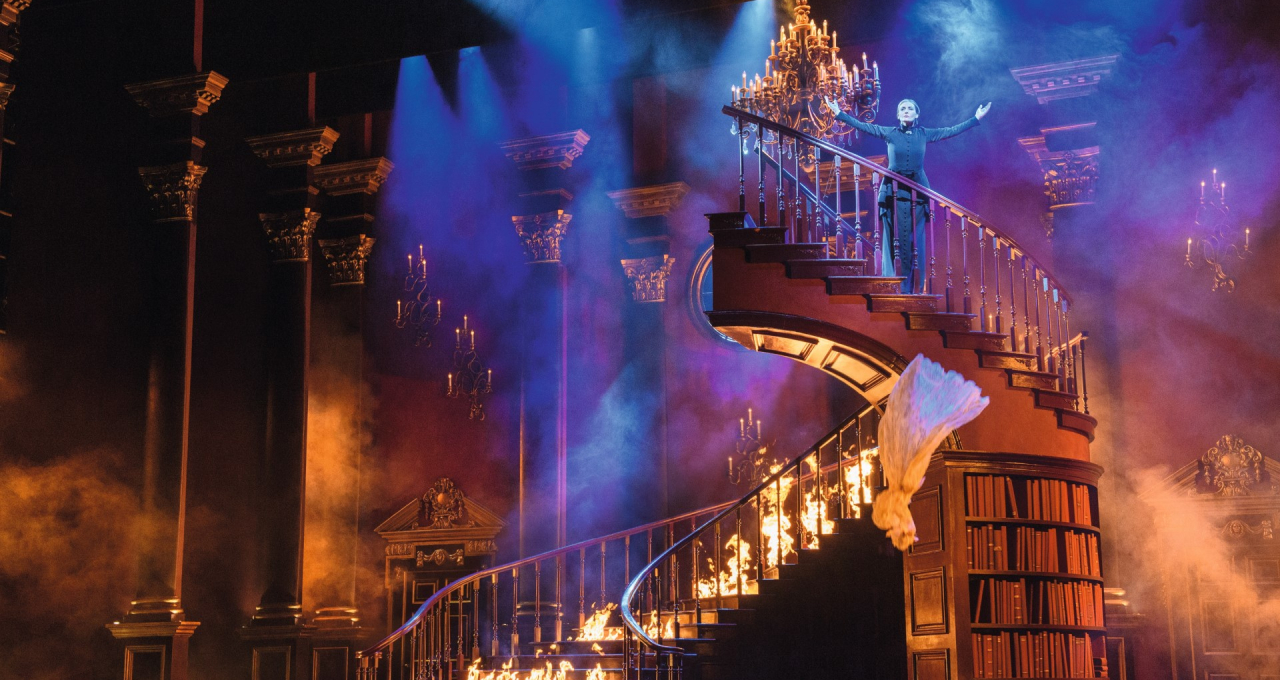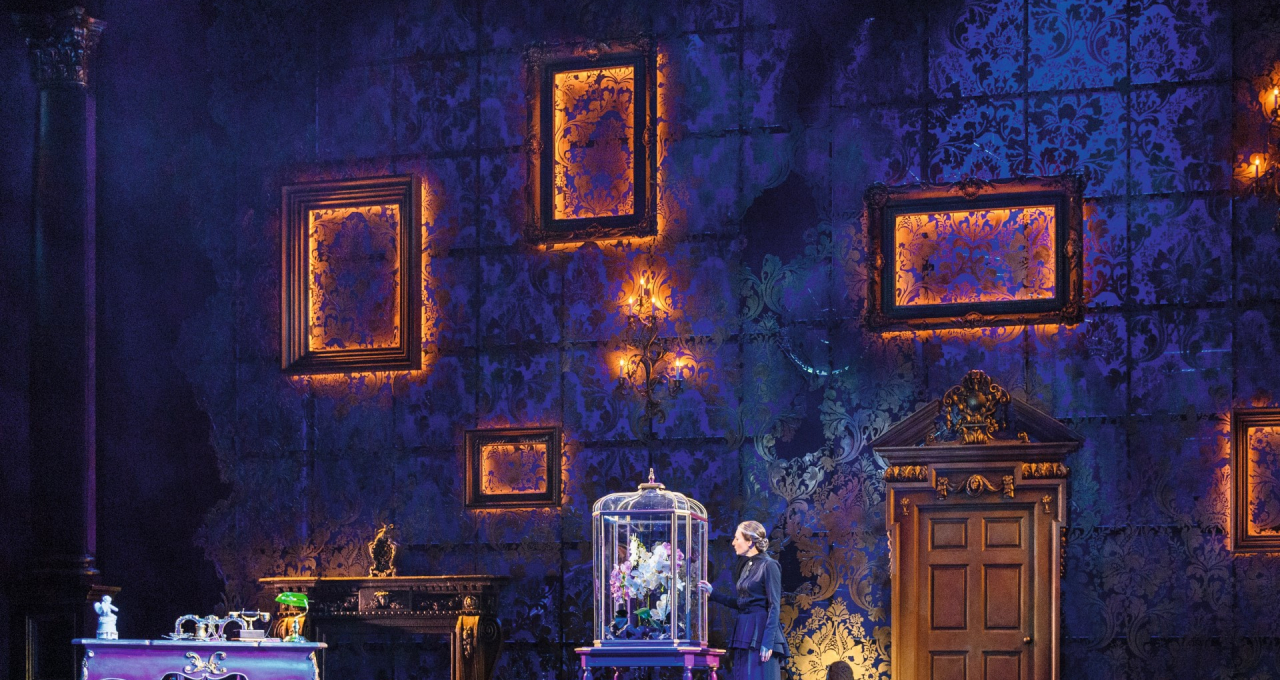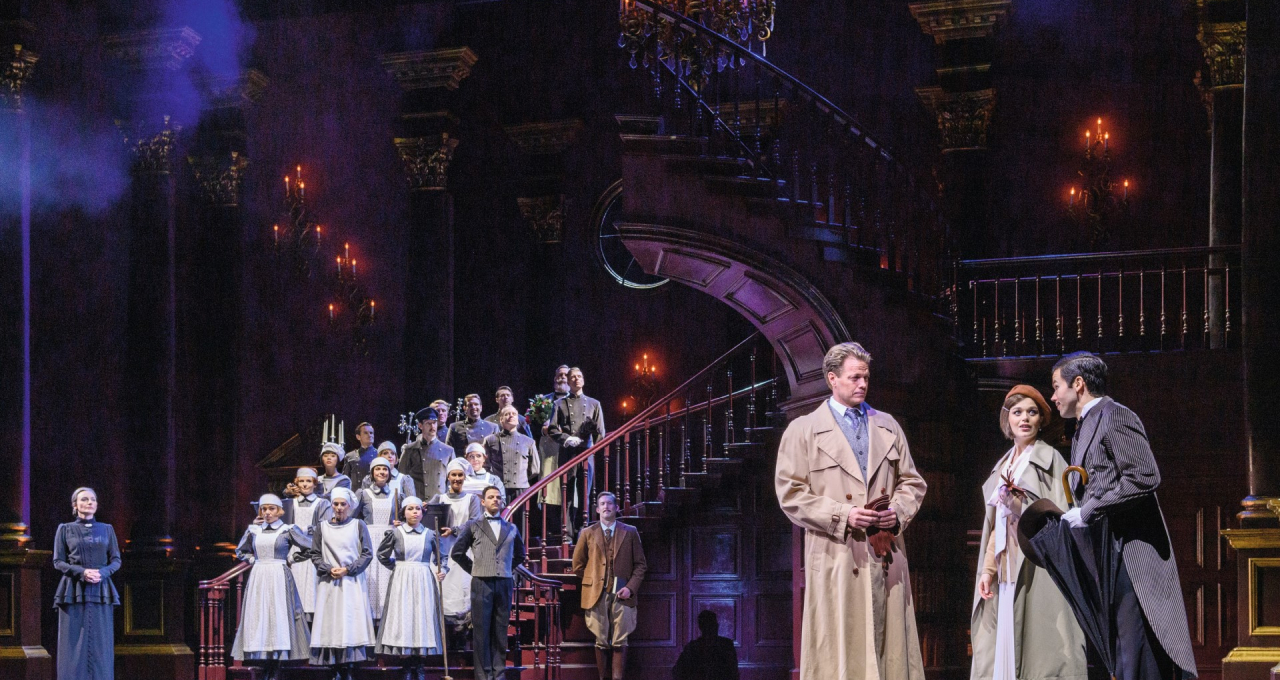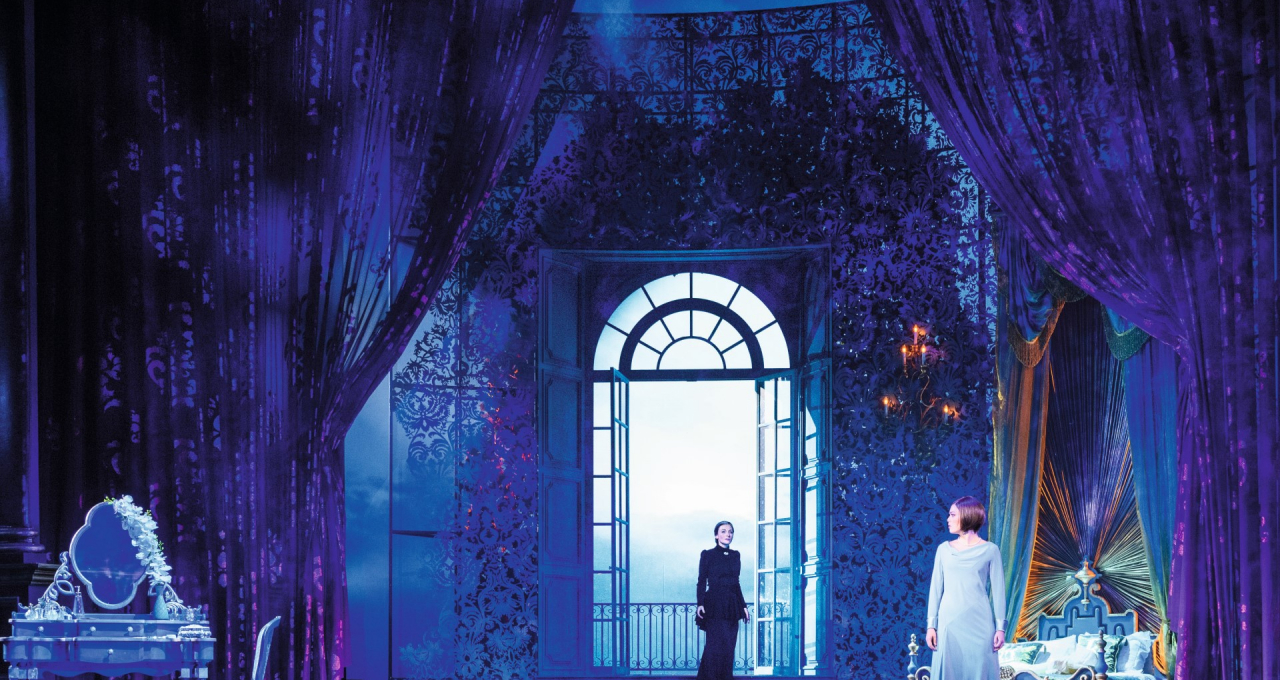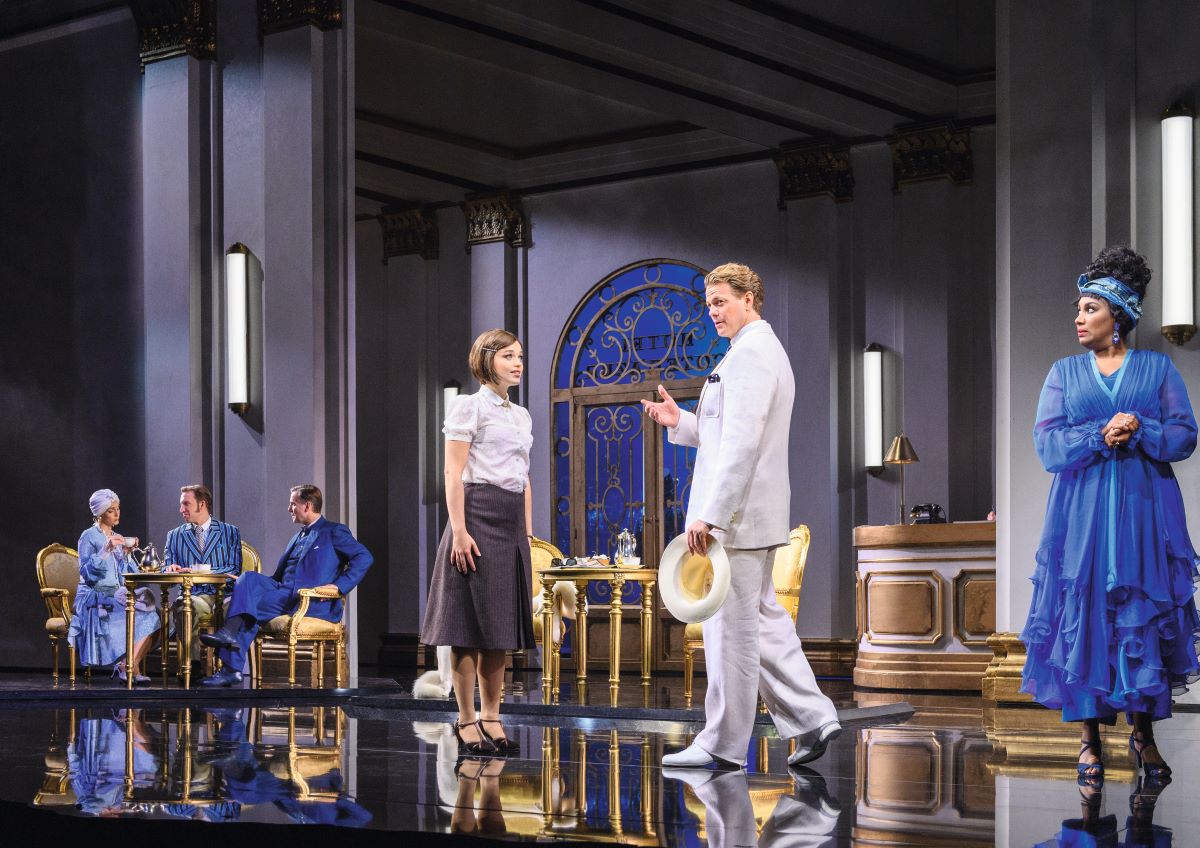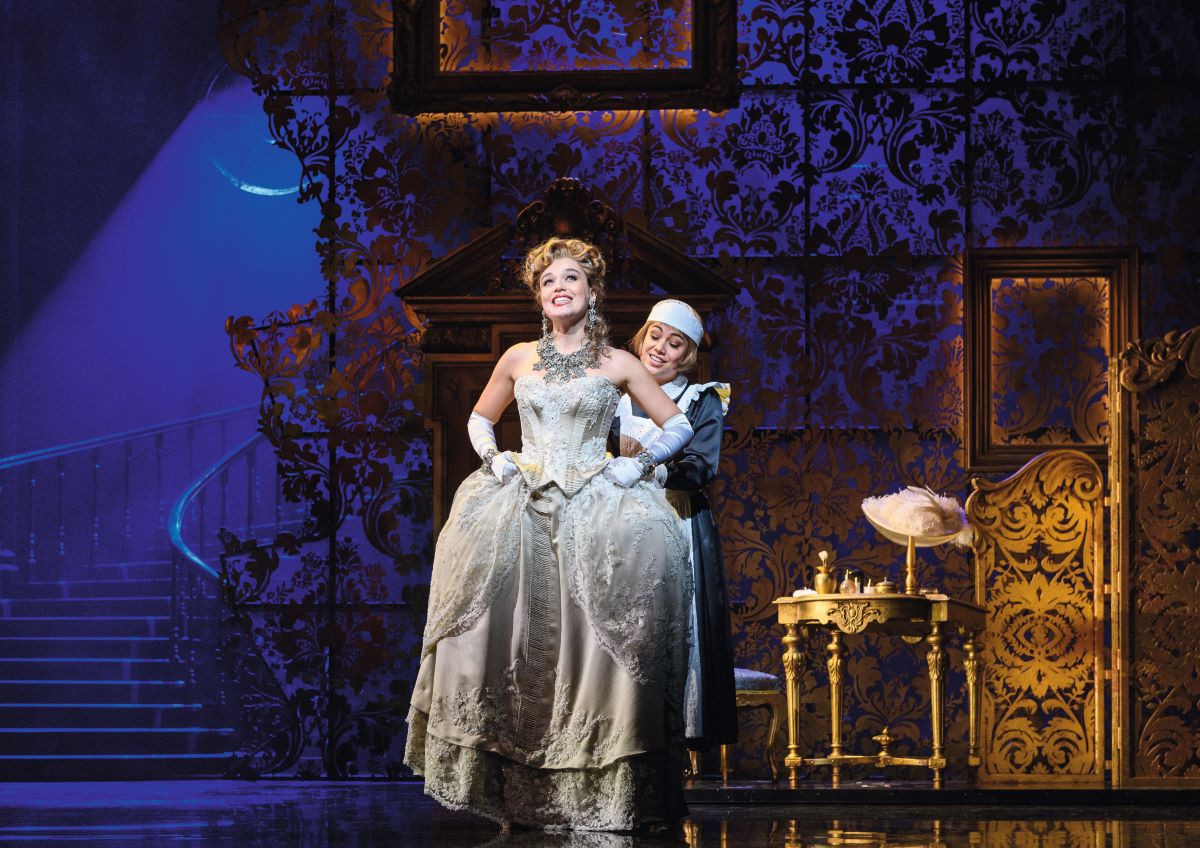Additional Tracks
Full musical soundtrack CDs available on request. Please contact us for our promotion packages.
Introduction
Based on Daphne du Maurier’s bestselling mystery novel, VBW created a classic Hollywood film noir for the musical stage, romantic, riveting and full of sinister suspense.
A shy and naïve young girl falling in love with the worldly, elegant millionaire Maxim de Winter. A man with a troubled mind and a dark secret, obsessed by a shadow from the past – his late wife, Rebecca. A sinister yet charismatic female villain – the vicious Mrs. Danvers – , slyly pulling all the psychological strings the classic thriller genre has to offer. And a magnificent mansion by the seaside – the legendary de Winter family estate Manderley – as a backdrop, endangered by looming catastrophic events: REBECCA has all the ingredients of a classic Hollywood film noir, with one crucial difference: instead of the silver screen, this production by VBW has been created for the live stage.
Based on Daphne du Maurier’s eponymous bestselling novel, adapted by thriller mastermind Alfred Hitchcock in 1940 as the equally fabulous movie version – his first and only movie ever awarded an Oscar – REBECCA by VBW adheres closely to its legendary source, approved and warmly welcomed by no other than the du Maurier family themselves: hugely impressed by a performance of Michael Kunze’s and Sylvester Levay’s ELISABETH, Daphne du Maurier’s son, Christian Browning, gladly granted the rights for a musical version to VBW.
Faithful to its psychologically riveting template, REBECCA traces the fascinating transition of the story’s unnamed narrator from a shy, mousy and insecure newlywed to a strong and self-assured woman, overshadowed by the mysterious Rebecca, a menacing character only present in memories and imagination. A superb example of the new genre created by Michael Kunze – the drama musical – this new interpretation of a true classic combines a moving love story with the dark elements of a quintessential Hollywood thriller. The secret that hangs heavy over Manderley, the ancestral home of the de Winter family, and a tightly woven web of intrigues and plot twists keep the audience enthralled from curtain up to the final dénouement.
Sylvester Levay’s powerful score repeatedly soars to new heights of passion, be it love, anger or fatal devotion to a deceased and long-gone person. Interspersed with these elements are moments of tenderness, true friendship and up-tempo numbers reminiscent of 1930s’ musichall tunes.
Add to that some truly memorable characters, not least the scheming Mrs. Danvers, one of literature’s most infamous female villains. And to top off an unforgettable night at the theater, the show boasts sets and visual effects that are simply stunning: the pounding of the waves as a backdrop, the grand staircase that swirls down to the stage and, as a breathtaking finale, the flaming inferno that consumes Manderley and Mrs. Danvers.
Success Story & Production Notes
Breathtaking effects and lavish sets
Over 2.4 million visitors in 13 countries
For three years, REBECCA ran to great acclaim at Vienna’s Raimund Theater. In Vienna alone, more than 500.000 visitors were mesmerized by the gripping storyline and stunning visuals. In all, 98% of all available tickets were sold. REBECCA has become yet another winning export production by VBW along with DANCE OF THE VAMPIRES, ELISABETH, MOZART!, RUDOLF and THE VISIT, with successful runs in the Czech Republic, Finland, Germany, Hungary, Japan, Romania, Russia, Serbia, South Korea, Sweden and Switzerland.
The original Vienna production, directed by the multiaward-winning American Francesca Zambello (three Olivier Awards, Palme d’Or, Golden Mask etc.), was acclaimed for its outstanding use of video projections, opulent sets and spectacular visual effects. Sophisticated lighting, created by Andrew Voller (DANCE OF THE VAMPIRES in Vienna, MAMMA MIA! in London), brilliantly evokes a mood of eerie menace in the house in Cornwall, which contrasts so vividly with the sunshine and gaiety of Monte Carlo, where Maxim de Winter first meets his second wife.
Denni Sayer’s (numerous operas and musicals) eloquent choreography and the authentic costumes capture the 1930s mood perfectly. But it is possibly the sets designed by Peter J. Davison (Olivier Award, Drama Desk Award) that steal the show and make REBECCA an unforgettable and truly thrilling night at the theater. Magnificent Hollywood flair, live on stage!
Press Review
-
“A performance of dreamlike effects - enjoyment guaranteed.”
-
“Here the happy ending becomes an event.”
-
“A dream of a show [...] Francesca Zambello's dazzling, cinematic production offers storytelling at its best, clearly defining the whirlpool of emotions experienced by the three tortured principal characters. Levay knows how to write tunes that jam in your head. He delivers the goods with Mrs. Danver´s haunting 'Rebecca' and the anthem 'The Power of a Woman in Love'.
-
“Everything works as if taken from a major Hollywood production.”
-
“A spectacle like a picturebook [...] lively and full of unexpected visual effects.”
-
“REBECCA will fascinate you from the first scene to the last.”
-
“One of the biggest triumphs of recent years […] beautiful, evocative, very catchy music, opulent, scenes laden with atmosphere.”
Credits & key facts
- World premiere:
2006 Austria / Vienna (Raimund Theater/VBW)
- Book & Lyrics:
Michael Kunze
- Music & Orchestrations:
Sylvester Levay
- Musical Supervisor:
Seann Alderking
- Based on the novel:
Rebecca by Daphne du Maurier
- Director:
Francesca Zambello
- Choreography:
Denni Sayers (2006), Simon Eichenberger (2011)
- Set Design:
Peter J. Davison
- Costume Design:
Birgit Hutter
- Lighting Design:
Andrew Voller (2006), Mark McCullough (2011)
- Sound Design:
Hendrik Maassen
- Video Design:
Sven Ortel
- Musical Director:
Caspar Richter
- Visitors worldwide:
over 2.4 million
- Shows worldwide:
over 2.700
- Countries:
Austria, Czech Republic, Finland, Germany, Great Britain, Hungary, Japan, Romania, Russia, Serbia, South Korea, Sweden, Switzerland
- Language versions:
Czech, English, Finnish, German, Hungarian, Japanese, Korean, Romanian, Russian, Serbian, Swedish
Main Characters
-
„I“–The Narrator
Initially presented as the employee and travel companion of Mrs. Van Hopper, an elderly and affluent American lady traveling the world, the 18-year-old “I” is still very naïve and impressionable. After her hasty and surprising marriage to the charming yet brooding Maxim de Winter, an English millionaire in the prime of his life, she assumes for a long time that he might still be in love with his late wife, Rebecca, and does not feel equal to the task of running his magnificent household, the legendary Manderley. As soon as she learns that his heart belongs only to her, she grows in stature, taking the reins at Manderley and helping Maxim lay to rest the ghosts of the past.
-
Maxim de Winter
Almost twice the age of his newlywed wife, he is an English nobleman and a true gentleman at heart, yet troubled by the memories of his first wife, the mysterious Rebecca, who fell victim to a dubious accident. He is wealthy and very self-assured, though torn by a great inner struggle. Sometimes short-tempered and sarcastic, he often regrets his angry outbursts, which result from the dark secret that weighs on his conscience.
-
Mrs. Danvers
Rebecca’s cousin and lover. A dashing playboy and womanizer he is also an unscrupulous money-grabber. He oozes irresistible charm but cannot be trusted.
-
Jack Favell
Rebecca’s cousin and lover. A dashing playboy and womanizer he is also an unscrupulous money-grabber. He oozes irresistible charm but cannot be trusted.
-
Mrs. Van Hopper
A larger-than-life character, played for comic effect. An immensely rich but rather dumb and narrow-minded American widow, conceited and flirtatious. As the former employer of “I” she is cynically dismissive of the latter’s ability to be a lady and succeed Rebecca as Maxim de Winter’s wife and mistress of Manderley.
-
Beatrice
A warm and pleasant character, Maxim’s elder sister is friendly, down-to-earth and a good judge of personality. She sees that “I” is good for Maxim and so accepts her without a second thought, even though she is below his station. She is a reliable friend who would do anything to help.
-
Frank Crawley
An English country gentleman and manager of Manderley estate. Maxim’s faithful friend, he is helpful and kind, honest and upright. For him, true friendship counts more than beauty or wealth.
-
Ben
A mentally handicapped village resident with second sight. Simple, childlike and shy, he knows the secret to Rebecca’s death but is too frightened to speak out.
Synopsys
„The sea calls her name.“
-
Act I
A wallflower marries a mysterious widower
In the opening scene, the narrator “I” dreams of her former home, Manderley. In the ruins of the mansion, shadows of the past appear. “I” remembers being naïve and childlike, accompanying the wealthy American Mrs. Van Hopper to Monte Carlo in 1926 where they meet the aristocratic widower Maxim de Winter.
Maxim’s wife, Rebecca, universally admired for her grace and beauty and worshipped by Maxim, is said to have drowned in a boating accident. Maxim shows an interest in “I,” engaging her in conversation. She falls in love with the handsome widower, who unexpectedly asks her to return to Manderley with him as his wife. She accepts.
Seven weeks later, the new Mrs. de Winter is introduced to the servants at the imposing stately home of Manderley. The sinister housekeeper, Mrs. Danvers, openly shows her disdain of the new lady of the house and also makes no secret of her continued devotion to the deceased Rebecca. “I” is clumsy and insecure, but Beatrice, Maxim’s sister, unhesitatingly welcomes her into the family. Maxim is prone to outbursts of anger, but Beatrice tells “I” that he is only cruel when he is in great distress.
A spiteful housekeeper
“I” is trying to make herself familiar with her new home and discovers an abandoned boathouse at Manderley Cove. She meets Ben there, a babbling simpleton. When Maxim surprises her there he is unaccountably furious.
A few weeks later, the de Winters hold a ball at the request of “I.” Mrs. Danvers advises “I” to wear a particular white dress. Clad in the evening gown, “I” for the first time feels like the lady of the house and proudly descends the stairs. But when the guests see her, they are appalled: the dress is a replica of the one Rebecca wore at her last ball, shortly before she died! Maxim angrily orders her to change, while Mrs. Danvers looks on with a malicious smile.
-
Act II
A startling confession
The morning after the ball “I” meets Mrs. Danvers, who warns her that she will never replace Rebecca. She advises “I,” who is still deeply upset by the events of the previous evening, to commit suicide to release both herself and Maxim. “I” is on the point of falling under Mrs. Danver’s hypnotic spell when loud explosions are heard: flares are being fired on the beach.
A boat has been washed ashore at the cove. “I” learns that it is Rebecca’s, and it contains a dead body. She goes there and sees Ben again, who hides when Maxim appears. Maxim looks terrible. To his wife’s astonishment he tells her he never loved Rebecca. It turns out that in fact he hated her for her selfish and frivolous character and her shamelessly promiscuous behaviour.
Then the final truth spills out of him: during a final heated argument with his wife he had hit her in a burst of temper, causing her to fall and suffer a fatal wound to her head. Panicking at the sight, he had seen no other choice but to cover up the incident and fake an accident by sinking Rebecca’s dead body in her beloved sailboat.
Tricked into murder
The realization that she is Maxim’s only love transforms “I.” She is determined to save him from prosecution as a murderer. She takes control of the household, removing all reminders of Rebecca despite Mrs. Danver’s protests. Maxim must appear in court where a jury will decide whether there is enough evidence to charge him.
Back at Manderley after the hearing, Rebecca’s cousin and confidant, Jack Favell, who assists Mrs. Danvers in keeping the memory of Rebecca alive, tries to blackmail Maxim with a letter from Rebecca. But Maxim calls the magistrate, Colonel Julyan, who questions Favell, Ben and Mrs. Danvers. It turns out that Rebecca had visited a gynecologist on the day before she died. Favell assumes that she was pregnant by him, which would provide a plausible motive for the jealous husband to kill her.
Colonel Julyan, Favell and “I” go to London to consult the doctor, learning that Rebecca was not pregnant, but terminally ill and having only a few weeks to live. All now becomes clear to Maxim: Rebecca provoked her own murder to ruin him.
Mrs. Danvers is shocked that not even she knew about Rebecca’s illness, but remains determined not to have any other Mrs. de Winter at Manderley. There is now a glint of madness in her eyes. “I” returns from London. She and Maxim embrace, happy at the prospect of future bliss. But suddenly a bright glow appears on the horizon. Manderley is burning! The servants try in vain to put out the blaze, and when Maxim and “I” arrive they learn that the fire was started by Mrs. Danvers, who perishes in the flames. Maxim’s grief is mixed with relief: he may have lost his home, but the demons of the past have also gone forever.


